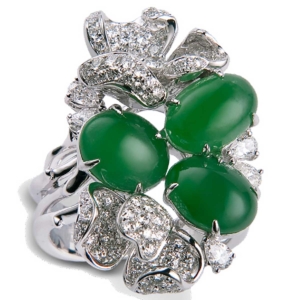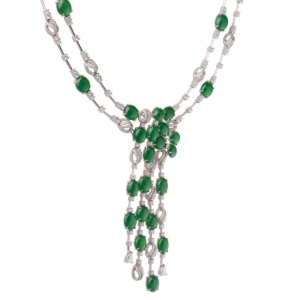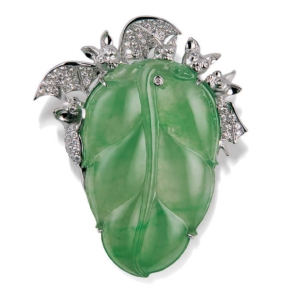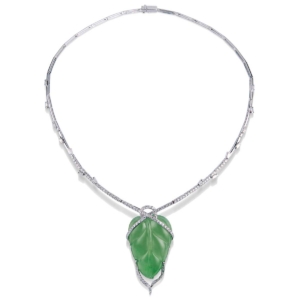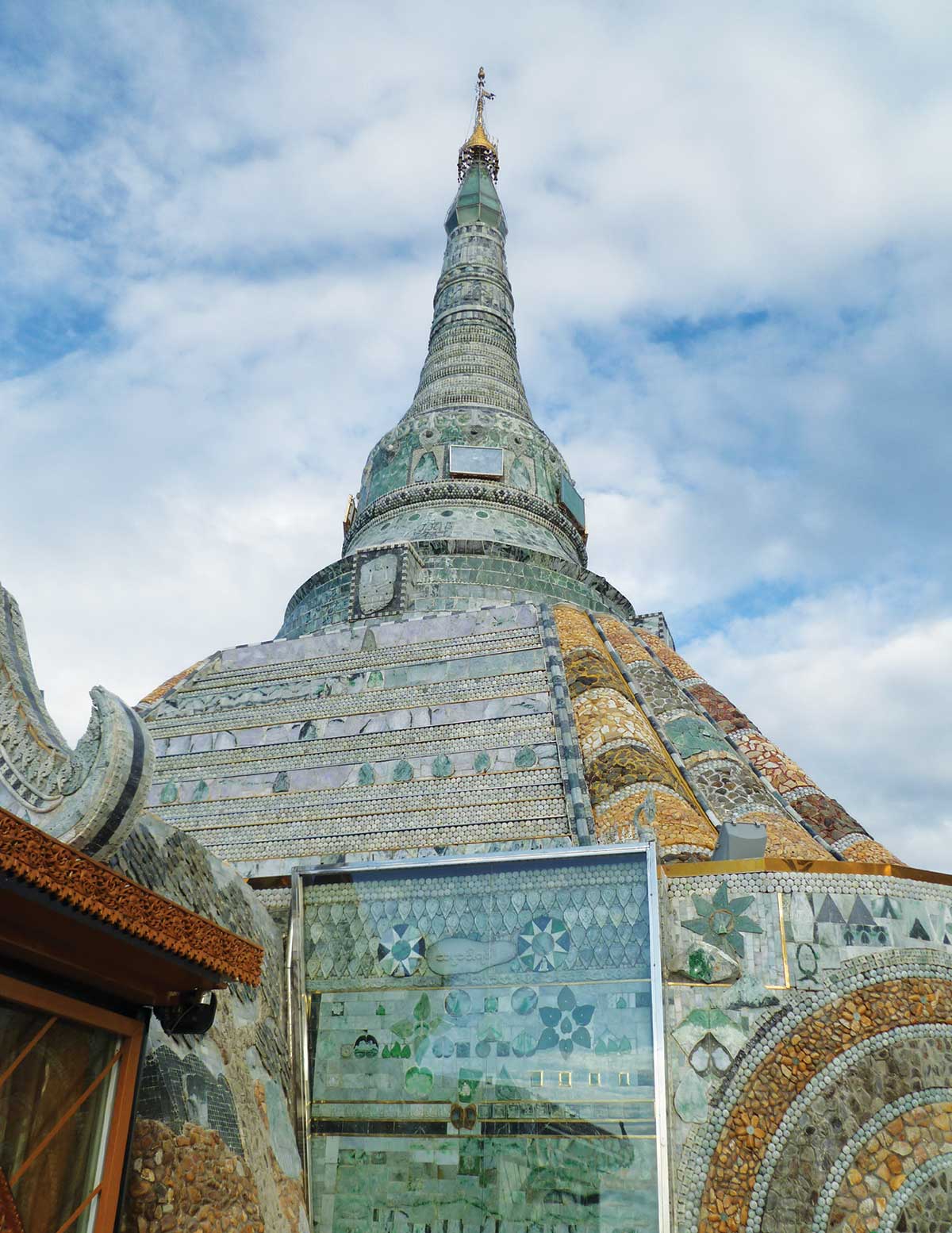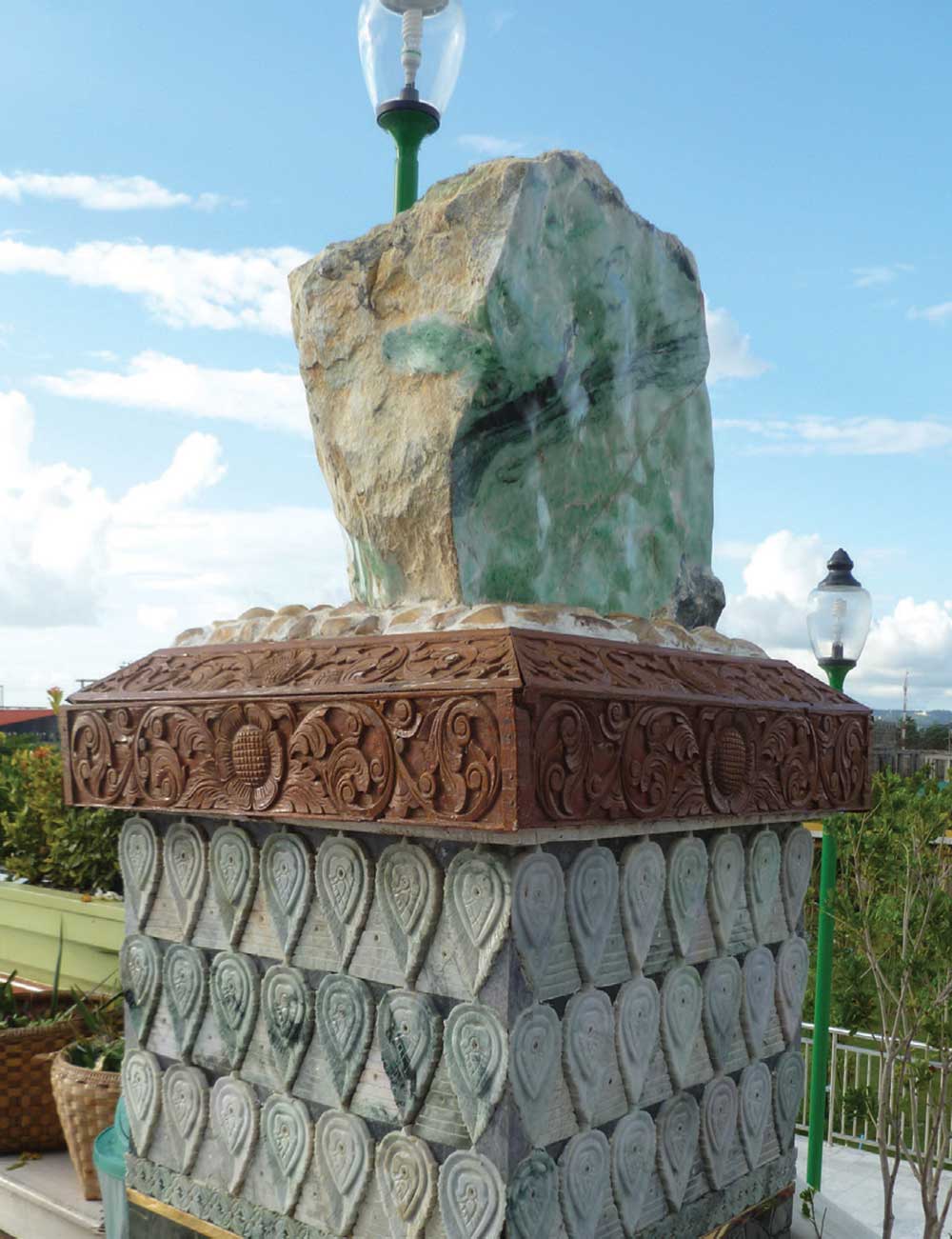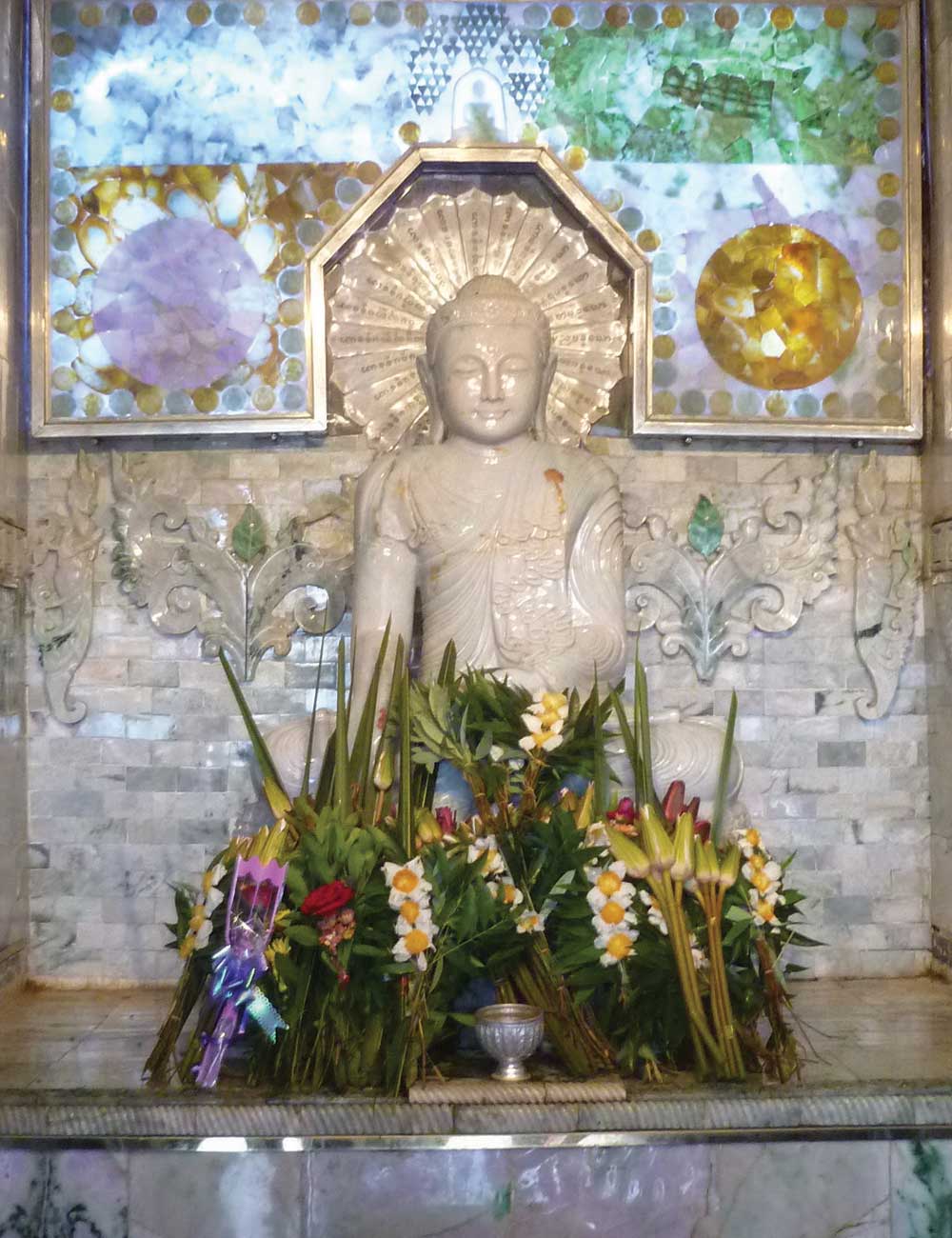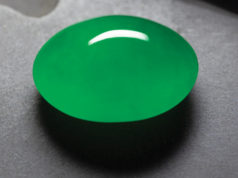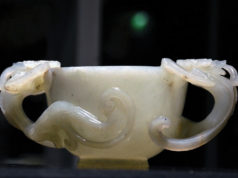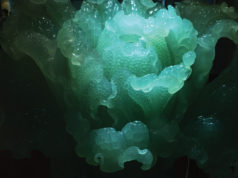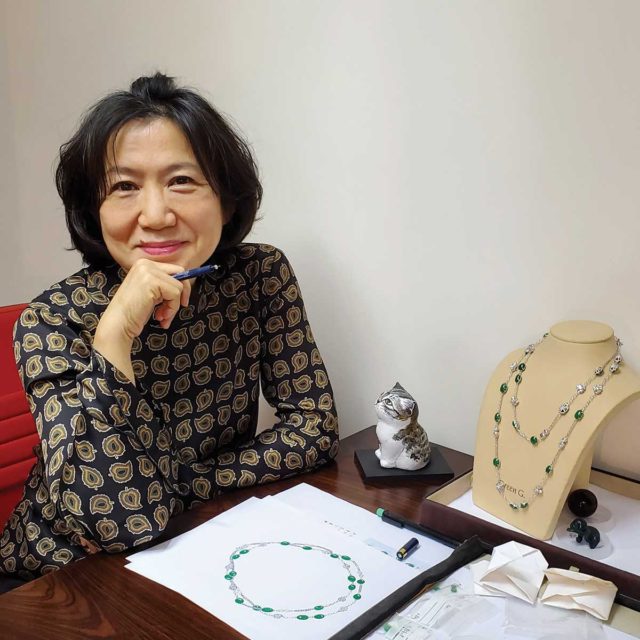
Estimated reading time: 4 minutes
Leaves, flowers, and other elements of Nature have always been a major inspiration for Sabina Lee. In addition to using colorful gems to capture’s Nature’s beauty, she also draws on her Chinese heritage with the use of jadeite, designed in ways that evoke traditional motifs, but with a more contemporary flair.
“Jadeite has been the beloved gemstone for Chinese for centuries,” explains Sabina. “The stone has rich meaning and power. It is thought to have a healing effect on the mind, to bring good fortune, enhance health and happiness, and even to fight against evil spirits. Jade is also perceived by the Chinese to be closer to Nature—and therefore closer to humans—than other gemstones. Many believe that, as much as a person is searching for the right piece of jade, a good piece of jade is likewise searching for the right person to find it.”
When asked why most contemporary jewelry designers have not paid much attention to jade, Sabina responds, “It is primarily because they don’t appreciate jade’s cultural significance or its intrinsic beauty. For the nonjade designer, it is also difficult to understand the value of jade, since prices can vary a great deal and there are also treatments to consider. For my designs, I use only Type A jade, which is natural and untreated.”
She goes on to explain that treated or enhanced jadeite falls into three other main categories: Type B (chemically treated and resin impregnated jadeite); Type C (dyed jadeite); and Type B+C (chemically treated, resin impregnated and dyed jadeite).
Are most of her clients for jade jewelry Chinese? “Yes, in general,” she answers, “but recently we are seeing more and more Western clients asking for jade pieces. Perhaps this is due to increased familiarity with the gem—just look at the record prices and the publicity jade has generated at the auctions—or perhaps people are looking for something new, or perhaps it is due to an increased desire to learn more about Chinese culture.”
Or, perhaps, the reason lies with her more contemporary designs that incorporate the beauty of a unique stone that signifies happiness and the natural world.
Part of Sabina’s appreciation for jade results from her upbringing in Hong Kong. Her parents cared about both traditional and modern cultural values; she was therefore nurtured in both. When she was young, she often accompanied her mother and other relatives to specialty jade jewelers, which led her to develop a discerning skill for judging and appreciating the gemstone.
(Photos: Cynthia Unninayar)
Her years of higher education in Canada consolidated her design philosophy. “It is both a challenge and an opportunity to use jade, blending traditional and cultural motifs and values with contemporary tastes,” she says. “My jade pieces are a meeting place between East and West, between Nature and culture, between tradition and modernity.”
While many jade pieces today are in simple settings, Sabina incorporates the gem into more complex designs that showcase the stone’s beauty. What colors of jade does she use? “For my collections, I mainly use green jade as this is the most popular color requested by my clients.” She adds, however, that she has used purple jade in specific designs for custom-made pieces.
Where does she source her jade? “I purchase the jade for my designs directly from the jade cutters in China who purchase either from the mine or from jade markets, for example, in Myanmar.” And speaking of Myanmar, she notes that high quality gems are mined in that country and are also highly appreciated there.
She also calls attention to the very large pagoda made entirely out of jade near Mandalay. “It stands as a testament to the cultural appreciation of the stone not only in Myanmar but attracts visitors from around the world.”
“Most of my clients are true lovers of jade, and their appreciation and collection of the gem is a lifelong pursuit”
And, when it comes to her lovely garden of jadeite jewels, it is clear that the appreciation of jade is also a lifelong pursuit for Sabina Lee. (www.greengjewelry.com)
Photos are courtesy of Sabina Lee, unless otherwise noted.



